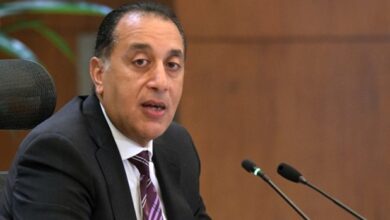Some economists have expressed fears of an approaching setback to the nation’s economy because of the lack of vision for its management in the future and uncertainty about the situation in the country.
Khaled Hanafy, an economics professor and the dean of the Arab Institute for Trade and Commodity Exchanges, said that generally it would be difficult to predict the economic situation before the elections are over and a new government is formed.
Hanafy said that a president-elect and a new government with a religious orientation would complicate the issue of obtaining loans, and that foreign investment and aid would be looked at from a different perspective. He called on the new government to appoint an independent minister who specializes in the management of this issue.
Hesham Ragab, an adviser to the industry and trade minister, said most economic issues concerned with draft laws, loan negotiations and aid restructuring would be frozen, as the general attitude of the ruling establishment is that of confusion and vagueness.
He went on to say that according to the recently issued supplement to the Constitutional Declaration and after the dissolution of Parliament, the issue of loan approvals and negotiations has come to lie under the jurisdiction of the Supreme Council of the Armed Forces.
Fouad Abu Stait, an international finance professor at Helwan University, said the supplement stipulated that the SCAF would approve the state budget and therefore have the spending authority.
He said legislative authority has officially been transferred to the ruling military council, and therefore the ongoing negotiations over obtaining a loan from the International Monetary Fund will remain unclear.
Abu Stait said the current political landscape is uncertain, and that if Muslim Brotherhood presidential candidate Mohamed Morsy is announced as the new president, the economy would be burdened even further and the loss of trust will increase, as the economic program of the Brotherhood and its Freedom and Justice Party is unclear.
The stock exchange has meanwhile experienced continuous losses since the announcement of early election results Monday. They show Morsy secured more votes than presidential candidate and former Prime Minister Ahmed Shafiq in the runoff election that took place Saturday and Sunday.
State-run news agency MENA on Tuesday quoted financial market expert Marwa Hamed as saying sharp losses recorded by the stock exchange were the result of deliberate selling by some investors who are opposed to Morsy’s win.
Edited translation from Al-Masry Al-Youm



